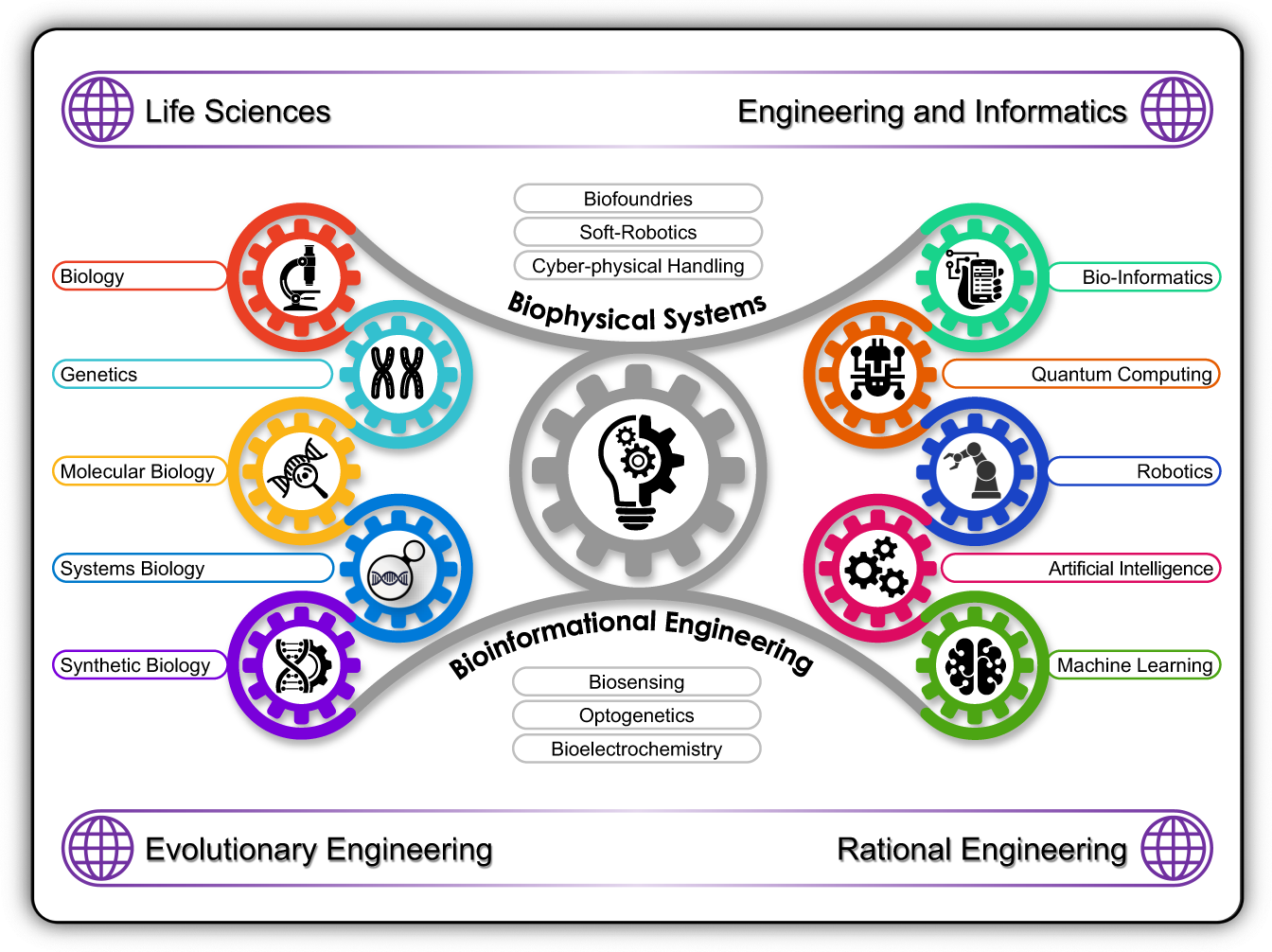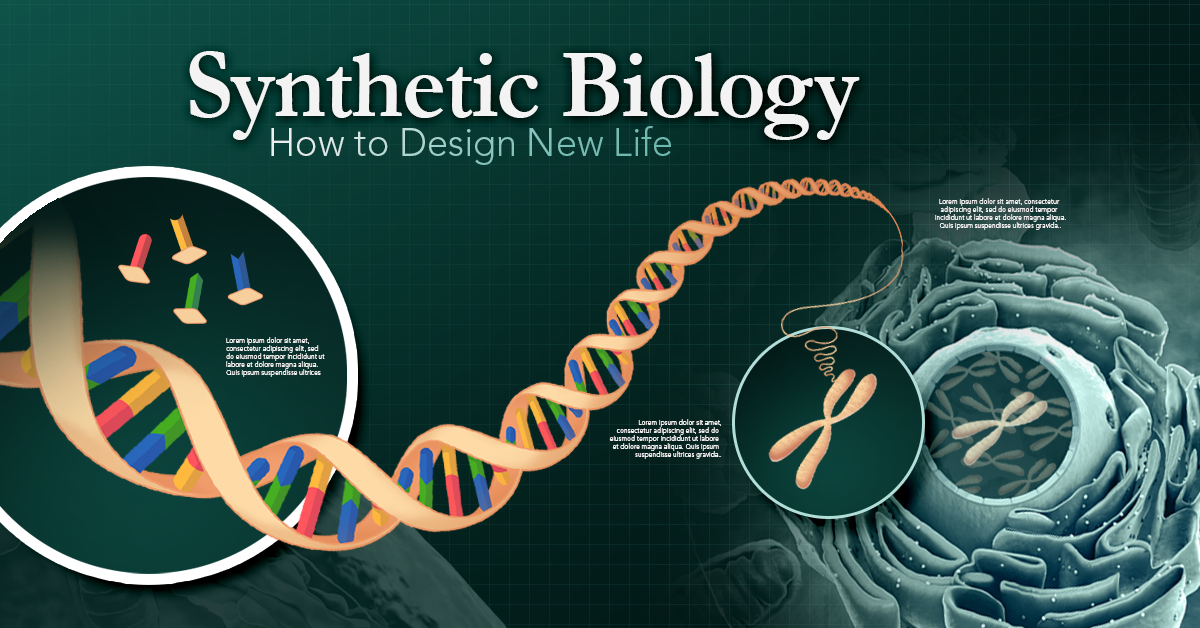Synthetic Biology: Unveiling Future Tech Marvels
- Update Time : Wednesday, May 8, 2024

Synthetic biology is a field that combines biology and engineering to design and construct new biological parts, devices, and systems. It aims to create or redesign biological components and systems to perform specific functions.
Synthetic biology holds great promise for addressing various challenges in healthcare, agriculture, and environmental sustainability. By leveraging the principles of engineering and molecular biology, researchers can engineer microorganisms to produce valuable chemicals, develop new drugs, and create sustainable biofuels. The ability to manipulate genetic material opens up endless possibilities for creating novel biological solutions to complex problems.
As the field continues to advance, synthetic biology is poised to revolutionize multiple industries and significantly impact our daily lives.
Synthetic Biology: A New Era
Synthetic biology marks the dawn of a new era in scientific innovation, merging biology and engineering to create novel biological systems. This groundbreaking field has the potential to revolutionize healthcare, agriculture, and environmental sustainability, offering promising solutions to global challenges.
| Synthetic Biology is revolutionizing the way we approach biological systems. |
| Scientists are creating artificial DNA sequences to program cells for specific functions. |
| This interdisciplinary field combines biology and engineering to develop novel solutions. |
Key Milestones In Synthetic Biology
Synthetic biology has achieved key milestones that have transformed the field from concept to reality. In the early 2000s, the synthesis of the first complete bacterial genome marked a significant breakthrough. This was followed by the development of CRISPR-Cas9, a revolutionary gene-editing tool, in 2012. Subsequently, the creation of artificial cells in 2016 showcased the potential of synthetic biology in creating life from scratch.
Furthermore, the establishment of biological circuits for programming cells has opened up possibilities for applications in medicine, biotechnology, and environmental sustainability. Looking ahead, ongoing advancements in DNA synthesis and bioinformatics are set to further accelerate the pace of innovation in the field of synthetic biology.
| Year | Breakthrough |
|---|---|
| Early 2000s | Synthesis of first complete bacterial genome |
| 2012 | Development of CRISPR-Cas9 gene-editing tool |
| 2016 | Creation of artificial cells |
Tools Of The Trade
In Synthetic Biology, the tools of the trade encompass a range of specialized instruments and techniques. These tools enable scientists to design and construct novel biological functions and systems for various applications. Through the use of these tools, researchers can manipulate genetic components and engineer biological entities with precision and efficiency.
| Synthetic Biology Tools |
| CRISPR technology enables precise gene editing for various applications. |
| Synthetic genomes are engineered from scratch to create customized organisms. |

Credit: www.nature.com
Applications That Are Changing The World
Synthetic biology has revolutionized the medical industry, leading to the development of advanced therapies and diagnostics. This innovation has paved the way for the production of sustainable biofuels and energy sources, significantly reducing reliance on non-renewable resources. The applications of synthetic biology are diverse and far-reaching, with the potential to address pressing global challenges. Furthermore, the integration of this technology into various sectors has sparked optimism for a more sustainable and efficient future.
Ethical Implications And Debates
Synthetic biology raises ethical implications and sparks intense debates. The morality of creating life through synthetic biology is a contentious issue, with some believing it crosses ethical boundaries. This technology also poses significant regulatory and safety challenges. Striking a balance between innovation and ethical considerations is crucial. Regulatory frameworks must evolve to address these ethical concerns and ensure the safe and responsible use of synthetic biology. Engaging in open dialogues and debates can help navigate the complex ethical landscape surrounding synthetic biology.
Economic Impact And Industry Growth
Synthetic biology is a rapidly growing industry with significant economic impact. Its potential to revolutionize fields such as medicine, agriculture, and energy production makes it a promising area for investment and innovation. As the industry continues to expand, it will likely create new jobs and drive economic growth.
| Synthetic Biology Impact: | Market Potential: | Investment Trends: |
| Synthetic biology contributes to economic growth through diverse applications. | Startups in this field show promising market potential for future growth. | Investors are increasingly funding synthetic biology ventures. |
| It leads to the development of innovative products and solutions. | New companies are exploring opportunities in various industries. | This reflects confidence in the industry’s growth prospects. |
| Research and development in synthetic biology drive industry advancements. | Entrepreneurs are leveraging technological advancements for success. | Financial support accelerates commercialization of biotech products. |
Synthetic Biology In Popular Culture
Synthetic biology blurs fiction and reality in popular culture with its portrayal in movies and literature, influencing public perception by sparking both fascination and fear. While exaggerated scenarios are common in science fiction, the actual focus is on beneficial applications like sustainable biofuels and medical treatments, highlighting the impact of popular culture on attitudes towards this field.

Credit: www.visualcapitalist.com
The Future Landscape
| Synthetic Biology |
| The Future Landscape |
| Predictions and Possibilities |
| Challenges and Opportunities Ahead |
Synthetic biology offers immense potential for innovation in various fields. Scientists predict groundbreaking advancements in medicine and environmental sustainability. The ability to engineer biological systems opens doors to unprecedented solutions.
However, the field also faces significant challenges. Ethical considerations and regulatory frameworks need careful evaluation. Balancing benefits with potential risks is crucial for responsible progress.
Educational Pathways Into Synthetic Biology
Discover diverse educational pathways available for entering the field of Synthetic Biology. Explore specialized programs and courses to gain expertise in this innovative and rapidly evolving scientific discipline. Embrace the opportunities to advance knowledge and skills in the realm of Synthetic Biology.
| Academic Programs and Research | Skills for Aspiring SynBio Professionals |
| Explore specialized courses in synthetic biology. | Develop strong analytical and problem-solving skills. |
| Engage in hands-on research projects. | Enhance your understanding of genetic engineering. |
| Join internship programs for practical experience. | Master techniques in gene editing and DNA synthesis. |
International Collaboration And Competition
Synthetic Biology is a rapidly growing field with international collaboration and competition. Global leaders in SynBio work closely together to advance research and development, but also compete to be the first to innovate and bring new products to market.
The race for innovation is intense, with companies and academic institutions vying for funding and recognition. As a result, there is a constant push for new breakthroughs and advancements in the field. This competition is driving progress and leading to new discoveries that have the potential to revolutionize industries such as healthcare, agriculture, and energy.
| Global Leaders in SynBio | Collaboration | Competition |
|---|---|---|
| United States | Collaborates with Europe and Asia | Intense competition with China |
| Europe | Collaborates with United States and Asia | Competes with United States and China |
| China | Collaborates with Asia and Europe | Intense competition with United States and Europe |

Credit: syntheticbiology.wustl.edu
Frequently Asked Questions
What Are Examples Of Synthetic Biology?
Examples of synthetic biology include genetically modified organisms (GMOs), engineered bacteria for drug production, and biofuels development.
Why Is Synthetic Biology Controversial?
Synthetic biology is controversial due to ethical, environmental, and safety concerns. It raises questions about potential misuse and unintended consequences. Additionally, some fear it could lead to the creation of dangerous organisms or disrupt ecosystems. These factors contribute to the ongoing debate surrounding synthetic biology.
What Is The Main Goal Of Synthetic Biology?
The main goal of synthetic biology is to design and construct new biological parts, devices, and systems for various applications.
What Are Four Applications Of Synthetic Biology?
Four applications of synthetic biology include biofuel production, pharmaceutical development, environmental remediation, and agricultural advancements.
Conclusion
Synthetic Biology has revolutionized the field of biological research by introducing the ability to engineer living systems to meet specific needs. The potential applications of Synthetic Biology are vast, ranging from the production of new medicines and biofuels, to the development of more efficient industrial processes.
However, as with any emerging technology, there are also potential risks and ethical concerns that must be addressed. With continued research and development, the field of Synthetic Biology has the potential to make a significant impact on our world.

















Leave a Reply